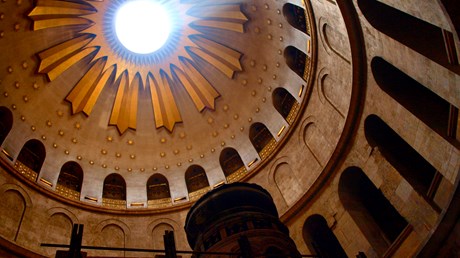A theological imagining of how the Big Bang echoes Easter.

Ironically, in defense of biblical faith, some Christians denounce the Big Bang—a theory originally rejected by many in the scientific community on the grounds that it smuggled a biblical view into science. Belgian Catholic priest and astronomer Georges Lemaître first proposed the theory in 1927 and called it the “cosmic egg” or the “primordial atom.” “Big bang” was a later phrase suggested by British astronomer Fred Hoyle, who opposed the theory.
The Vatican, for its part, was so thrilled by Lemaître’s theory and its progressive verification in the scientific community that Lemaître himself had to contact the Vatican to plead that it desist from making scientific proclamations, a domain beyond its magisterium. The Vatican complied, and the attitude of global Christendom toward the Big Bang has been largely ambivalent ever since.
So, if the notion that the universe exploded from a single point was first conceived by a Christian and considered by the Catholic Church to align beautifully with the message of the Bible (primarily with the doctrine of creatio ex nihilo, “creation out of nothing”), how might this scientific idea continue to contribute to theology?
Well, I believe the clue is right there in the name Lemaître gave to his theory: the cosmic egg. With which holiday in the Christian calendar are eggs associated? Easter, of course. And so here is the parallel: For the scientific community and for Christian believers, respectively, the Big Bang and the resurrection of Jesus postulate as the vanishing point of their worldviews a privileged, unrepeatable, radically timeless moment in which light burst forth out of darkness, heat burst out ...
from
http://feeds.christianitytoday.com/~r/christianitytoday/ctmag/~3/4_ai8er90A4/when-life-burst-out-of-death.html
No comments:
Post a Comment